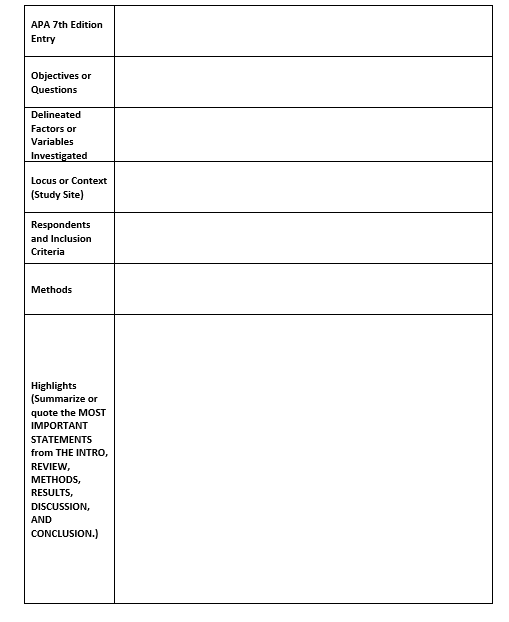PD 6: Preparing for the Written Comprehensive Exams
25 July 2022

This post is part of my blog project “Pedagogy Discourses (PDs),” which is a course requirement at the University of the Philippines Open University (UPOU).
The Graduate Comprehensive Examinations
If you have pursued (or are pursuing) a master’s or doctoral degree, you will understand how it can be incredibly daunting. On top of your responsibilities at work and in the family, there is a sheer amount of reading and researching necessary to gain a critical understanding of the literature. In my case, it became quite daunting when I had to complete the Written Comprehensive Examinations (WCE). The WCEs are a battery of essay-type examinations, which are designed to measure the breadth and depth of your understanding of the literature in various disciplinary subfields. The nature of the tests means that the evaluators - from whom you can ask the coverage - expect your answers to be grounded on various research materials, especially those found in journal articles and including those outside what you read for class. When I was still a master’s student, I was assessed for the following courses I previously took: Advanced Academic Writing, Foundations of Language Studies, Structure of English, Discourse Analysis, Varieties of English, and Second Language Acquisition (SLA).
Each of these courses demanded different declarative and procedural knowledges. For example, in Structure of English, one of the tasks in the test was to establish a tree diagram that required understanding sentence constituents and distinguishing complements from modifiers. The demands for that course were different from my Advanced Academic Writing course, which focused on rhetorical structures and citation practices. Meanwhile, my examination in Second Language Acquisition centered on theories and concepts on how people acquire languages and included two case studies that required us to explain an issue based on language acquisition research.
Test Preparation: A Cognitive Exploration
Cognitive information processing principles played a huge role in my preparation for the WCEs, although I was not aware of these at the time. I had over a month to prepare for the exam, where I tried various strategies to ensure that information can be retained not just for the examinations, but also in the long term. However, because of the sheer amount of review material for these six tests, I was overwhelmed at first; my attention was often divided as I focused on multiple courses at the same time. Thankfully, a friend who was completing her medical degree at the time kindly advised me to block off one course for every four days. That strategy allowed me to sustain my attention in reviewing for each course.
However, there was still the question of how to review for the tests. At first, I tried maintenance rehearsal, where I tried to memorize key terms and ideas from the literature. Regrettably, I quickly discovered that this method did not allow me to engage in a deeper processing of information. I could not recall the important information I tried memorizing in the first day when I tried answering mock questions on the fourth day. It also did not help that some ideas such as the Fundamental Difference Hypothesis in SLA were quite complex to simply memorize. Hence, I realized that what I was doing was counter-productive and must thus change the gameplan.
I then tried various strategies to make my review more meaningful. The first strategy that proved helpful to my review was combining my reading with various materials for multimodal learning. For example, after reading SLA journal articles, I decided to check if there were informative YouTube videos on the topic. I found one recording of Bill vanPatten’s lecture, which was sufficient to help me understand the essence of the recent studies in SLA. I also tuned in to his podcast Tea with BVP, which further enriched my understanding of theories and concepts. The nice thing about the podcasts is that I could listen to them even while commuting to work, so in some ways, I still get to review and recall the key concepts and principles even after many weeks have passed.
Another meaningful strategy I used was mind mapping my understanding of the literature, which encouraged me to piece information together in my mind and on paper. This approach allowed me to scrutinize and appreciate how concepts and ideas relate to each other. In addition, it was a good opportunity for me to transform ideas from verbal to visual forms, so I did not need to re-read the same reams of printouts later on. Instead, I had a visual in front of me that helped me engage in a deeper form of review.
Throughout the review period, I was guided by my previous knowledge and experiences of these topics, including those I gained since my undergraduate years. However, I also realized that it is impossible to remember every minute detail in a journal article or chapter. Considering that time was also of the essence, I therefore made it a point to identify only the key and the supporting ideas. For example, in an empirical article, I looked for the following: the research problem or questions, the framework(s) used, the data and methods, the key findings, and the conclusion. These pieces of information were organized in a matrix similar to the image below to facilitate the management of my cognitive load.

Conclusion
This experience not only helped me pass the WCEs; it has also changed the way I studied for my future classes. I just wish I had enacted these strategies even before I started pursuing education coursework. Perhaps my graduate school learning adventure might have been even more meaningful if I had enacted these strategies I mentioned while I was still taking those courses. Nonetheless, these more meaningful review strategies - apparently supported by cognitive information processing learning ideas - reshaped the way I consume new information today.